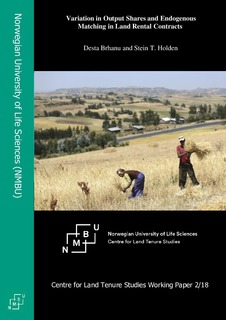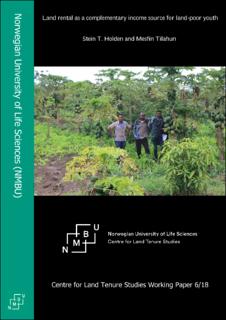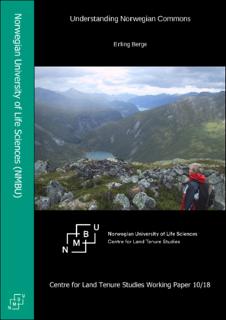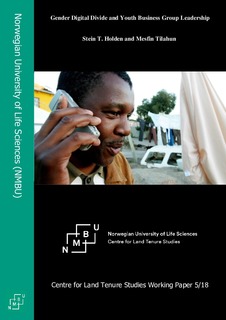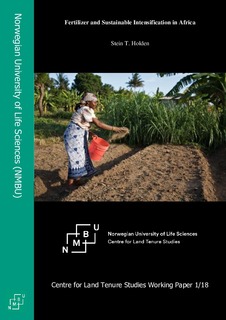Location
The Centre for Land Tenure Studies was opened at the Nowegian University of Life Sciences (NMBU) on the 27th of June 2011 resulting from a joint initiative by researchers at the Department of International Environment and Development (Noragric), the School of Economics and Business, and the Department of Landscape Architecture and Spatial Planning. In 2012 was joined by the Department of Ecology and Natural Resource Management.
Mission
The Centre for Land Tenure Studies (CLTS) at NMBU is established to further the study of land tenure. Land tenure studies define a broad and complex field of study cutting across many disciplines. For CLTS this entails, but is not limited to, the following activities:
- Provide a common arena for discussing land tenure issues, including a series of seminars directed to present new research or important theoretical perspectives. This may be designed as part of an educational program.
- Promulgate a joint series of working papers.
- Support international publication of articles and books.
- Develop and conduct joint courses at both Master and PhD level.
- Initiate and support exchange of researchers.
- Participate in research networks related to land tenure.
- Maintain a public list of collaborating institutions and researchers.
- Initiate and develop applications for research funds to support basic research on land tenure both by our own efforts and in collaboration with other research groups working on land tenure questions.
In its activities the centre will use English as its working language as far as practically possible. In short we may say that the mission of the Centre for Land Tenure studies is to enhance collaboration across departments at NMBU; to strengthen the visibility of NMBU activities within the field of land tenure; to strengthen NMBU’s international collaboration and networks within the field; to contribute to research and knowledge generation on land tenure issues; to help build capacity in the South and in Norway within the field; to disseminate policy lessons, and to contribute to policy debates.
Resources
Displaying 16 - 20 of 67Variation in output shares and endogenous matching in land rental contracts
We investigate the extent of variation in output sharing in land rental contracts and alternative hypotheses to explain this variation. Close to half of the rental contracts in our study in northern Ethiopia have output shares that deviate from the dominant 50-50 equal sharing. Variation in land quality, the relative bargaining power of landlords and tenants, production risks and shocks are hypothesized to influence output shares. Matched data of landlords and tenants are used.
Land rental as a complementary income source for land-poor youth
Continued high population growth in already densely populated rural areas in parts of Sub-Saharan Africa makes it harder for youth to choose agriculture as their main source of income. We investigate whether near landless youth can still access rented land as a complementary source of income. We utilize a unique data set of rural youth that have been allocated rehabilitated communal land to form formalized business groups for joint business activity. They rely on complementary sources of income and land renting is one of these.
Understanding Norwegian commons
The paper reviews the development of the legal status of Norwegian commons from the first known legislation on commons. The development can be divided into 5 periods.
The first period lasted until about 1300. In this period, the commons changed from being a local matter for the chiefs and the local thing to become a national resource where also the King had rights to resources for defence of the realm.
Gender Digital Divide and Youth Business Group Leadership.
We assess the gender difference in mobile phone ownership among youth business group members, and how it affects election into leadership and group board positions in recently established rural youth business groups in northern Ethiopia. Based on data on 1125 youths from 119 youth business groups where 32% of the members were female, 37% of the females and 70% of the males owned mobile phones. Male members were twice as likely to become board members and five times as likely to become group leaders.
Fertilizer and sustainable intensification in Africa
The paper investigates the important role of fertilizer to enhance sustainable intensification and food security in Sub-Saharan Africa based on a multi-disciplinary literature review. The review starts with a macro-perspective taking population growth, economic development and climate change into account. This is complemented with a micro-perspective summarizing findings from comprehensive micro-data in selected African countries. Agronomic, environmental and economic profitability implications of fertilizer use are reviewed.








